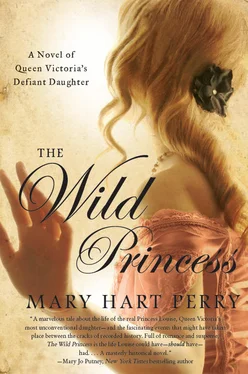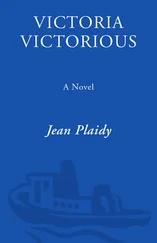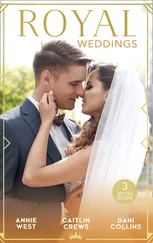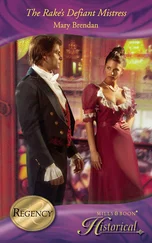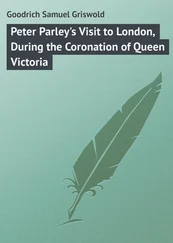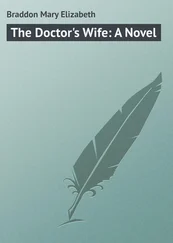The Wild Princess: A Novel of Queen Victoria's Defiant Daughter
by
Mary Hart Perry
This book is dedicated to Mallory—not a royal princess but, in her own way, no less amazing than Louise. Her talents and dedication to all living things will make a joyful difference in the world. I can’t imagine a more wonderful granddaughter.
This is a novel. That means it is fiction, fantasy, make-believe—not a true historical account. Did any of the people in this story live and any of these events happen? Yes, quite a few. But the joy of fiction comes from its ability to borrow facts and details from the real world and then encourage the author to embellish them and produce a unique entertainment. The wise reader will consider this story nearly entirely the result of the author’s imagination.
Queen Victoria and Prince Albert’s Children and Grandchildren
Victoria (1819–1901) = Albert (1819–1861)
Princes/Princesses SpousesVictoria (Vicky) = Frederick III (Fritz) Princess Royal (became German emperor) (1840–1901) (1831–1888) The GrandchildrenWilliam II (became German emperor) Charlotte Henry Sigismund Victoria (became Queen of Greece) Waldemar Sophie Margaret
Princes/Princesses SpousesEdward VII (Bertie) = Alexandra King of England Princess of Denmark (1841–1920) (1844–1925) The GrandchildrenAlbert Victor George V = Mary (King & Queen of England) Louise Victoria Maud John
Princes/Princesses SpousesAlice = Louis IV (1843–1878) Grand Duke of Hesse-Darmstadt (1837–1892) The GrandchildrenVictoria Elizabeth Irene = Henry, Prince of Prussia Ernst Louis, Grand Duke of Hesse Frederick William Alexandra = Nicholas II, Tsar of Russia Mary Victoria
Princes/Princesses SpousesAlfred = Marie Duke of Edinburg (1853–1920) (1844–1900) (Grand Duchess of Russia) The GrandchildrenAlfred Marie (later, Queen of Romania) Victoria Melita Alexandra Beatrice
Princes/Princesses SpousesHelena (Lenchen) = Christian (1846–1923) (1831–1917) The GrandchildrenChristian Victor Albert Helena Victoria Marie Louise Frederick Harald
Princes/Princesses SpousesLouise = John (Lorne) (1848–1939) 9 thDuke of Argyll (1845–1914) The GrandchildrenNone
Princes/Princesses SpousesArthur = Louise Margaret (1850–1942) (Princess of Prussia) (1860–1917) The GrandchildrenMargaret Arthur Patricia
Princes/Princesses SpousesLeopold = Helena (1853–1884) (1861–1922) The GrandchildrenAlice Charles Edward
Princes/Princesses SpousesBeatrice = Henry (Liko) (1857–1944) Prince of Battenberg (1858–1896) The GrandchildrenAlexander Victoria Eugenie (Ena) = Alfonso XIII (King and Queen of Spain) Leopold Maurice
Osborne House, Isle of Wight
Wednesday, 23 January 1901
My dearest Edward,
I write to you with a grieving heart. My emotions are so a-jumble at this moment I can barely stop my hand from trembling long enough to put pen to paper. As all of London wakes to the sad news, you too must by now be aware that Victoria, Queen by the Grace of God of the United Kingdom of Great Britain and Northern Ireland, Defender of the Faith, Empress of India—my mother—has passed from this life. Last night I stood at her bedside along with my surviving sisters and brothers, the many grandchildren, and those most favored among her court. We bid our final good-byes, and she drifted away. Among us was the devoted Colonel the Lord Edward Pelham-Clinton, who delivers this letter and accompanying documents, by hand, into your possession.
The doctors say it was a cerebral hemorrhage, not uncommon for a woman in her eighties, but I believe she was just tired and ready to rest after reigning these tumultuous sixty-three years, many of them without her beloved Prince Consort, Albert, my father, who died before you were born.
She was not a physically affectionate mother, demanded far more than she ever gave, often drove me to anger and tears, and very nearly destroyed my life . . . more than once. Yet I did, in my own way, love her.
The enclosed manuscript is my means for setting straight in my own mind the alarming events of several critical years in my life. But more than that, it will bring to you, although belatedly—and for that I apologize—the truth. Your mother, my dearest friend, wished to tell you of these matters long ago. Indeed, it was she who compiled most of the information herein, using her rare skills as an observer of human nature and, later in life, as a gifted investigative journalist. I have filled in the few facts she was unable to uncover on her own. For selfish reasons I begged her to keep our secrets a while longer . . . and a while longer. Then she too departed from this world for a better one, leaving no one to press me to reveal these most shameful deeds. Indeed, Edward dear, I would not even now strip bare the deceptions played out in my lifetime, had they not so intimately involved you.
Do these words shock you? If so, then you had best burn these pages and live the rest of your life in ignorance. But as I remember, you were a curious lad, and so I expect you will read on. However, before you go further, I must ask of you a solemn favor. What I am about to reveal is for your knowledge alone, that you might better understand both the gifts and the sins passed along to you. To share this account with others would cause scandal so damaging that our government would surely topple. Therefore, I implore you to choose—either destroy the enclosed manuscript this instant without reading it, or do the same after reading in private.
Regardless of your decision, I pray you will ever think of me as your devoted godmother and friend, and not hate me for the things I have done to protect you or, on my own behalf, simply to survive.
Be assured of my love,
Princess Louise, Duchess of Argyll
Windsor Castle, St. George’s Chapel, 21 March 1871
Under siege, that’s what we are, Louise thought as she observed the mayhem beyond the church’s massive oak doors. Indeed the week-long crush of boisterous visitors had become truly dangerous.
“There must be thousands of them,” she murmured, more to herself than to any of her bridesmaids clustered around her.
Her brother Bertie gently closed the door, shutting out the cheers of the crowd. “It’s all right. The guardsmen have things well in hand.”
Scores of well-wishers from London and the surrounding countryside had arrived on foot and horseback, along with souvenir vendors, draymen with cartloads of sightseers, and hawkers of ale, roasted potatoes, and meat pies. They clogged Berkshire’s country roads, converging on Windsor, making virtual prisoners of the royal family and their guests within the great castle’s walls.
Many travelers hadn’t been content with a tourist’s hasty view of Windsor in the days before the wedding. They’d set up crude campsites outside the walls, lit bonfires that blazed through the night. Toasts to the bride and groom turned into drunken revelry. Hundreds pressed against groaning castle gates, hoping for a chance glimpse of the royal couple. Crowd control, never before an issue at a royal wedding, became a necessity. A nervous Queen Victoria called up her Hussars and a fleet of local constables to reinforce the castle’s guardsmen.
Читать дальше
